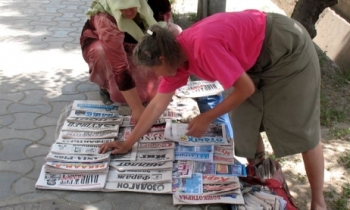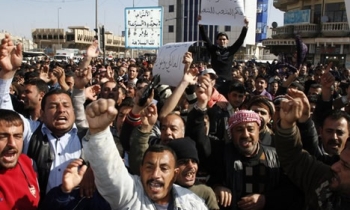Media Research User’s Council (MRUC) first ever TV User Body meet on television ratings in India left the participants with much to ponder upon. The council and the User Body members established that the current systems were inadequate to measure TV in India and following the meet scheduled in Delhi, MRUC would decide whether it would offer alternate data or complementary data to the existing players in the country.
The panellists of the first meet that was held in Mumbai constituted of members of the MRUC governing board Nabankur Gupta (Member of Board of Advisors, Raymond Ltd), Arvind Sharma (Chairman and CEO, Leo Burnett India) along with MRUC’s Technical Committee Chairperson Roda Mehta and Lynn de Souza, Member, Board of Governors, MRUC, and Director, Media Services, Lintas India.
De Souza began the meet, offering reasons and points that indicated the inadequacy of ratings. She spoke about niche channels not being represented. "The viewing time for special interest channels is increasing and we get zero ratings for them, which is garbage," she noted.
Out of home viewing, office viewing, India urban and rural, not being represented with only 38 per cent being covered, number of peoplemeter homes, inability to capture what the affluent light viewers were watching, were some of the points she brought forward to accentuate a need to take some action for better television ratings in the country.
Nabankur Gupta added to her point, saying that Raymonds withdrew advertising from a certain segment of TV as the brand realised that 90 per cent of its communication was not reaching its audience.
The User Body had more to add to what the panellists put forward. Responding to some of the suggestions that MRUC put forward about quarterly data, members like ETV’s I Venkat and Peter Mukerjea, CEO, STAR India, pointed out that delayed data could be useless as broadcasters would prefer overnight data in today’s times.
However, MediaCom President, Jasmin Sohrabji offered that some additional data for a cross check could be a starting point as at present there was not much that could be seen as a second opinion.
Another area that needed data representation, according to Mukerjea, was in context to the new addressability platforms available today. He said, "Digitisation is a reality. The concept of primetime being My Time is set to materialise in India as well. We need to be able to measure this."
HLL’s Rahul Velde, cautioned about the multiplicity of data that could cause problems as was seen in print with the presence of IRS and NRS, and that MRUC should avoid a situation like that in TV.
The discussion then centred again around the sample size that ratings systems today offered. Sohrabji brought out the point of affordability here, which would become a graver issue if sample size in the present system was increased.
Accuracy of data, timeliness and various other issues saw some intense debate at the meet before some suggestions came forth. One key suggestion was offered by Mukerjea, who called for looking for a cheaper form of data collection. Referring to the kind of information that came from the SMSs that STAR India received, Mukerjea said, "Our experience is that not only do we get a large response, we get it from towns that are not even represented in the NRS."
Another suggestion was that the utility of set top boxes to measure data and the possibility of using these more with the phenomenon of DTH coming in.
On one input that MRUC could audit the data, Sohrabji informed that the Joint Industry Body (JIB) was already in the process of incorporating something of this nature. Another suggestion was that the present ratings systems should have the mandate from users to get the audited by external members before publishing it.
Some members were more vociferous in their opinions suggesting that the only way to bring about a change was to stop taking the data, unless some basic requirements were changed.
The User Body suggested two broad ways for the MRUC in its endeavour to pioneer TV research, which Mehta encapsulated, "The User Body has to tell us whether we should bring an independent, alternate data body, which would offer TV ratings based on industry requirements, or work with the existing ratings systems."
After both points were discussed some more, where some members reiterated that a present system just couldn’t be disbanded, de Souza concluded by saying that after the meet in Delhi was over, MRUC would be able take a decision on the route they would take to improve the ratings stance in the country. The meeting in Delhi is planned for September 16, 2005.









